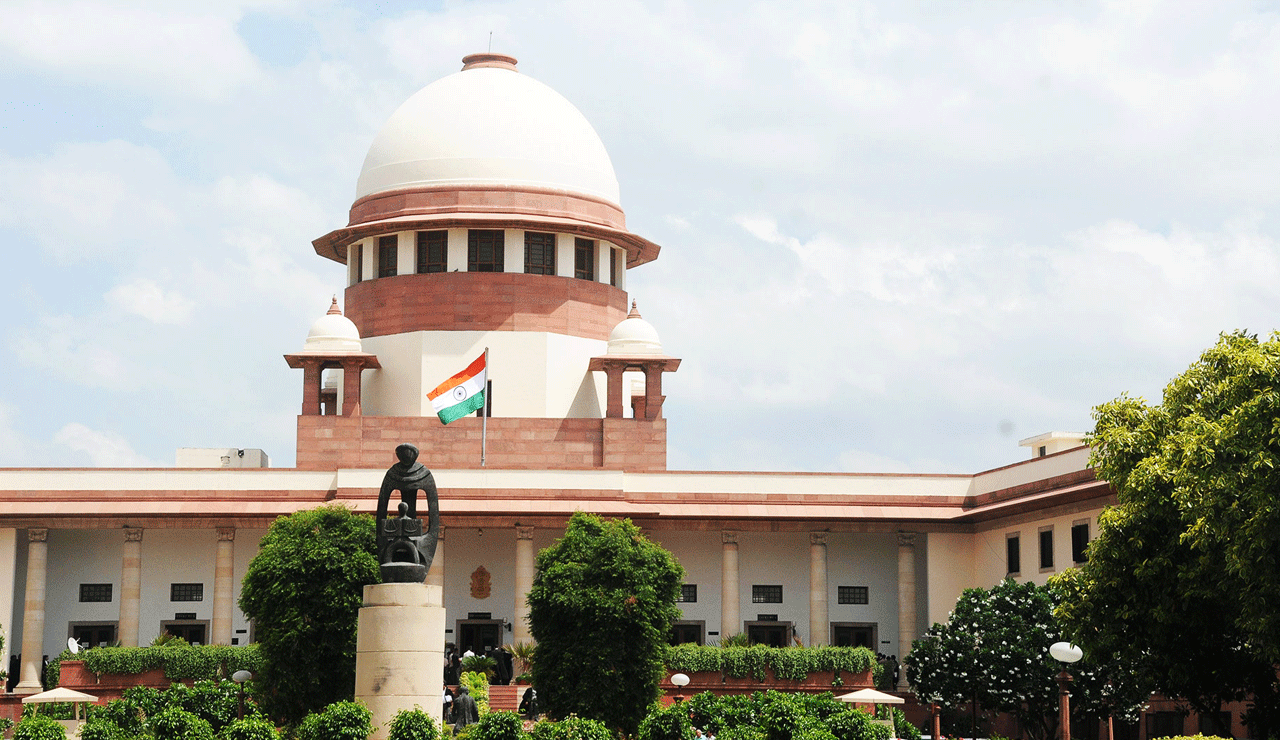Supreme Court Petition Seeks to Strike Down Provisions of Waqf (Amendment) Act 2025
On Tuesday, noted Hindu rights activists and advocates Hari Shankar Jain and Vishnu Jain moved the Supreme Court of India, challenging several provisions of the Waqf (Amendment) Act, 2025.

On Tuesday, noted Hindu rights activists and advocates Hari Shankar Jain and Vishnu Jain moved the Supreme Court of India, challenging several provisions of the Waqf (Amendment) Act, 2025. The petitioners seek the striking down of specific sections of the amended Act as they argue that these provisions violate various Articles of the Indian Constitution.
Table of Contents
Key Provisions Challenged
The petition, filed under Article 32 of the Constitution of India, targets multiple sections of the Waqf (Amendment) Act, including Sections 3(r), 4, 5, 6(1), 7(1), 8, 28, 29, 33, 36, 41, 52, 83, 85, 89, and 101. The petitioners claim that these provisions are ultra vires to Articles 14 (Equality before the law), 15 (Prohibition of discrimination), 21 (Right to life and personal liberty), 25 (Freedom of conscience and free profession, practice, and propagation of religion), 27 (Freedom as to payment of taxes for promotion of any religion), and 300A (Right to property) of the Constitution.
Also Read: Harish Rao Exposes Congress’s ‘Publicity Stunt’ on Interest-Free Loans for Women
According to the petitioners, these provisions facilitate the illegal appropriation of Hindu public utility properties, government land, Gram Samaj lands, and religious places. The petition further argues that the amendments disproportionately favor the Muslim community, thereby creating a significant imbalance in Indian society, and jeopardizing the rights of Hindus.
Grounds for the Petition
The petitioners have laid out several grounds for challenging the Waqf (Amendment) Act, including:
- Hindu Community Properties: They request that the government take measures to identify and reclaim properties that have been illegally registered as Waqf properties, specifically targeting Shamlat Deh, Shamlat Patti, and Jumla Mulkkan lands.
- Government Action on Waqf Properties: The petitioners seek an order directing the Government of India to take effective steps to recover properties that have been transferred or recorded in the name of the Waqf Board, arguing that these actions are illegal and against the rights of Hindus and non-Muslims.
- Civil Court Access for Non-Muslims: The petitioners are asking for a declaration that Hindus and non-Muslims should not be affected by actions taken under Sections 4 and 5 of the Waqf Act. They also seek the right for non-Muslims to approach Civil Courts if they are aggrieved by actions under the Act, specifically challenging the applicability of Sections 83 and 85 to non-Muslims.
Historical Context and Ongoing Legal Battle
Hari Shankar Jain and Vishnu Jain have been at the forefront of several high-profile Hindu rights cases, including their involvement in the Ayodhya case and their leadership in the ongoing legal battles surrounding the Gyanwapi Mosque-Kashi Vishwanath Temple, the Krishna Janmabhoomi-Shahi Idgah (Mathura), and the Sambhal disputes.
The duo’s latest petition is being seen as a significant move in protecting the religious and property rights of the Hindu community, while also questioning the constitutional validity of laws that they believe disproportionately benefit one community over others.
What’s Next for the Petition?
The Supreme Court is expected to hear the petition in the coming days, and the outcome could have significant ramifications for the application of the Waqf Act in the future. Legal experts are closely following this development, as it could set a precedent for how property disputes and religious rights are handled in India.
The petitioners are hopeful that the Court will recognize the need for balance and fairness in the application of the Waqf Act, ensuring that all communities are treated equally under the law.
